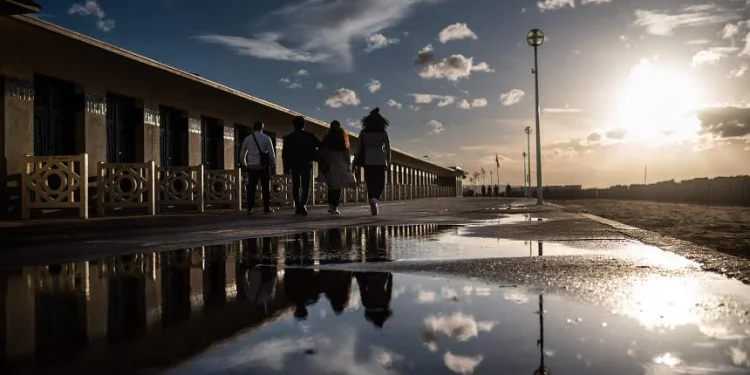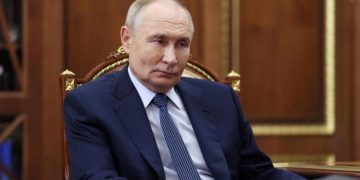There are some decades when only a year’s worth of change happens, and some years when a decade’s worth of change happens. The past three years – marked by the COVID-19 pandemic, Russia’s invasion of Ukraine, and a full-blown cost-of-living crisis, all playing out against a backdrop of heightened geopolitical tensions – certainly feels like the latter. Indeed, it feels all too similar to the years surrounding the early 1970s oil shock, after which it took about 20 years for stability to return. Can we write a new narrative of progress more quickly this time?
We have been through clusters of challenging events before. The three that stand out are the immediate aftermath of World War II (1944-46), the 1971-73 oil crisis, and the breakup of the Soviet empire (1989-92). Like an earthquake, each changed the global landscape with the sudden release of powerful underlying forces that had been building up around a fault line. Each also changed the rules governing key features of our world, ushering in a new era. But, through it all, progress has continued.
So, are we now on the cusp of a new era? To answer that question, a new McKinsey Global Institute paper considers five major dimensions of today’s world: global order (the institutions, frameworks, and rules that shape international affairs); technology (the platforms and applied sciences enabling development and innovation); demographics (important trends and socioeconomic contours across populations); resources and energy (the systems for transporting and converting energy and materials for use); and capitalisation (the drivers of global supply and demand, and the overall trajectories of finance and wealth).
All these dimensions are viewed with the history of past epochal shifts in mind. After the earthquake of WWII came an economic boom that lasted roughly until 1971. The United Nations and the Bretton Woods institutions were established, and the US dollar became the de facto global reserve currency, pegged to gold. Economies and societies shifted from wartime mobilisation to peacetime reconstruction. At the 1945 Potsdam Conference, the United States officially ended its isolationist policies and assumed its hegemonic mantle. Joseph Stalin negotiated the division of Europe and raced to develop the Soviet Union’s nuclear capabilities. The foundations for the first era, the Postwar Boom, were set.
But then came what we call the Era of Contention, which ran from around 1971 to 1989. The expensive and difficult war in Vietnam divided the US and revealed the limits of its power. In 1971, US President Richard Nixon suddenly suspended the dollar’s convertibility into gold, and the era of fiat money began. In 1973, an oil shock – caused by OPEC members seeking to leverage their assets – contributed to deep recessions and 15 years of heightened energy costs. Momentum shifted toward the East: Japan’s GDP overtook Germany’s. Nixon visited China, breaking a 25-year diplomatic freeze between the two countries.
Then, starting in the late 1980s, underlying stresses unleashed another earthquake, inaugurating another new era. The Berlin Wall fell, the Soviet Union collapsed, and Europe’s geopolitical deck was reshuffled. Pro-democracy movements swept across Europe, Asia, and Africa. The Maastricht Treaty was signed in 1992, signaling a leap forward in Europe’s economic and political integration. China, after halting progress, fully recommitted to its market reforms with Deng Xiaoping’s Southern Tour of 1992. Meanwhile, the Gulf War became a showcase of US military power.
The World Wide Web also was born in 1989, creating the scaffold for a digital revolution. China and India went on to join the global economy, unlocking the single largest reduction in poverty that humanity had ever seen. We dub this period the Era of Markets.
That brings us to our own age of remarkable progress in health, wealth, education, and the deepening of global interconnections. Overall, people have become much better off. Three decades ago, around 35% of the world’s population lived in extreme poverty; today, that share has dropped to less than 9%. The cumulative effect has been astonishing, and the rules governing it all quite stable – at least until now.
We don’t yet know what will emerge from the new turbulence. Though we can discern directions of travel, complex questions in each of the five domains remain unresolved. In terms of global order, there seems to be a tendency toward multipolarity, but we don’t yet know what that would look like in practice. Will the economy remain global in nature, and will we find new workable mechanisms for non-economic cooperation? Could years of relative moderation in international politics give way to more polarisation?
With respect to technology, while the key drivers of digitisation and connectivity appear to be approaching saturation, a new wave of technologies, including artificial intelligence and biotech, may create another surge of innovation. What impact might this have on work and the social order, and how will technology, institutions, and geopolitics interact?
On demographic issues, a young world is evolving into an aging, urban one in which noncommunicable diseases become the main health concern. Moreover, inequality within countries may increasingly challenge the social fabric. Will we “age gracefully,” or will capital and institutions fail to respond appropriately to inequality?
On resources and energy, there is a strong desire to shift investment toward lower-carbon sources, but total investment in all forms of energy appears to be struggling to keep pace with needs. Can the world find an affordable, resilient, and feasible path to climate stability? What dynamics will play out between those who have critical resources and those who do not?
Finally, economic growth rates appear to be normalising, and growing leverage and credit may evolve into balance-sheet stress. The OECD century will continue to give way to the Asian century.
If we are indeed in the early throes of a seismic shift – as seems likely – leaders must both prepare for the possibility of a new era and position themselves to shape it. The current vantage point may invite pessimism. Yet through all the previous ups and downs, progress has marched on. Our times demand action, but history offers great hope.
The writer is a director of the McKinsey Global Institute. ©Project Syndicate.






































